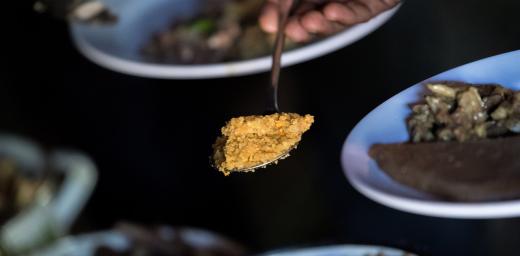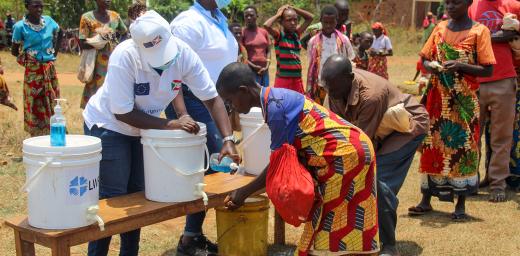Strategizing around the stove
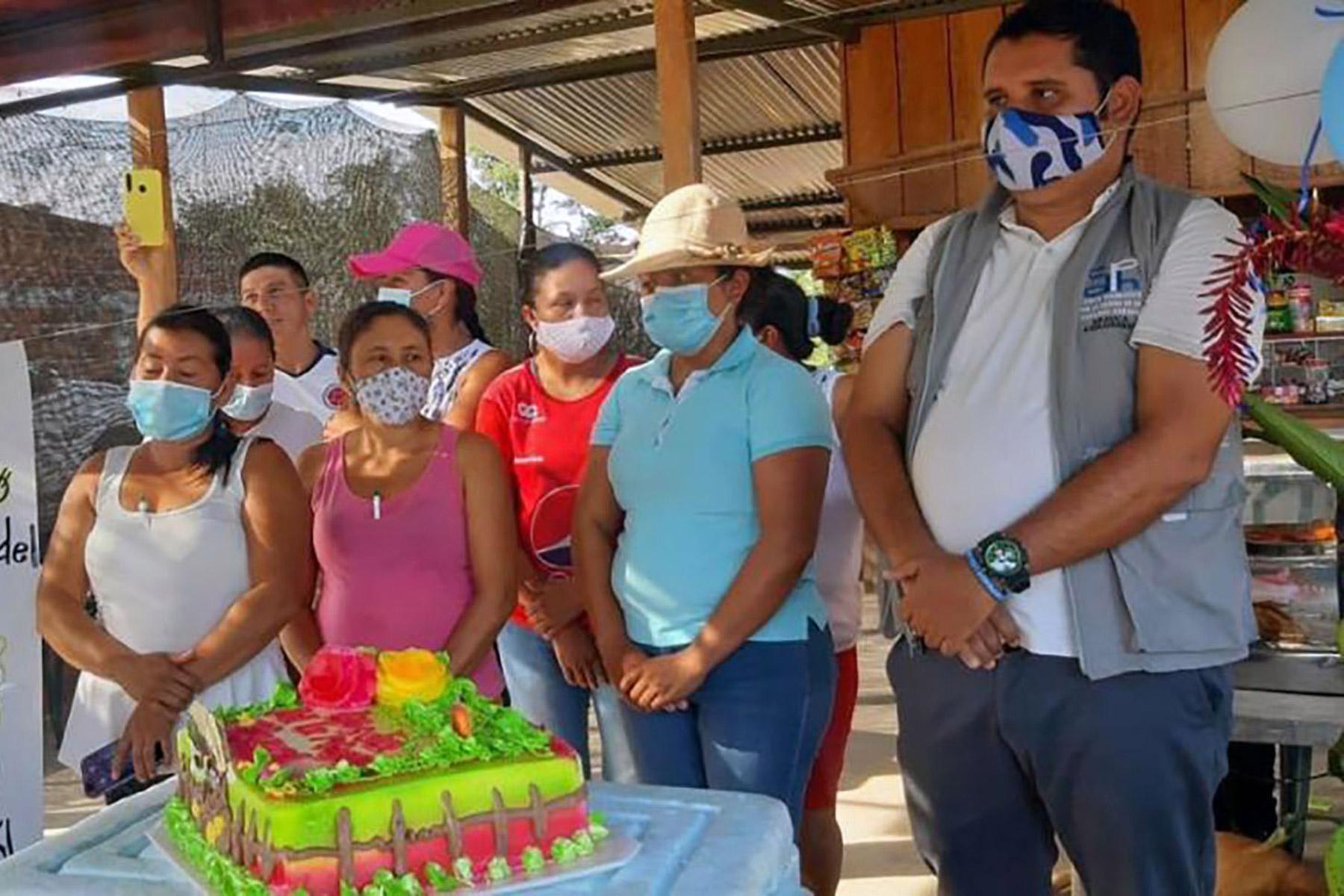
The sales stand of the Grupo de Mujeres de las Mercadas Campesinas in la Yuca village. All photos: LWF Colombia
LWF livelihoods work in Colombia empowers women and teaches about human rights
(LWI) - Livelihoods and human rights: A project of the Lutheran World Federation (LWF) in Arauca, Colombia, combines the two and empowers women. The Group of Women of the Peasant Markets (Grupo de Mujeres de las Mercadas Campesinas) has set up community gardens and leadership training for women affected by Colombia's conflict.
The Arauca district in the East of Colombia, bordering Venezuela, is rich in natural resources. Therefore, the region was contested by different armed factions during the Colombian civil war, and there is still activity by paramilitary groups. The population, many of them indigenous, suffer from violence and marginalization. LWF has been supporting sustainable livelihoods projects, prioritizing indigenous groups and women.
Growing vegetables, growing strong
The Grupo des Mujeres has 330 members in the municipalities of Arauca, Arauquita, Saravena, Tame, and Fortul. One very successful group regularly meets in the La Yuca village. They have set up a little shop where they sell their vegetables and animal products. But they are not only women farmworkers, but they are also leaders in training, says Medalis Pérez, the group's representative.
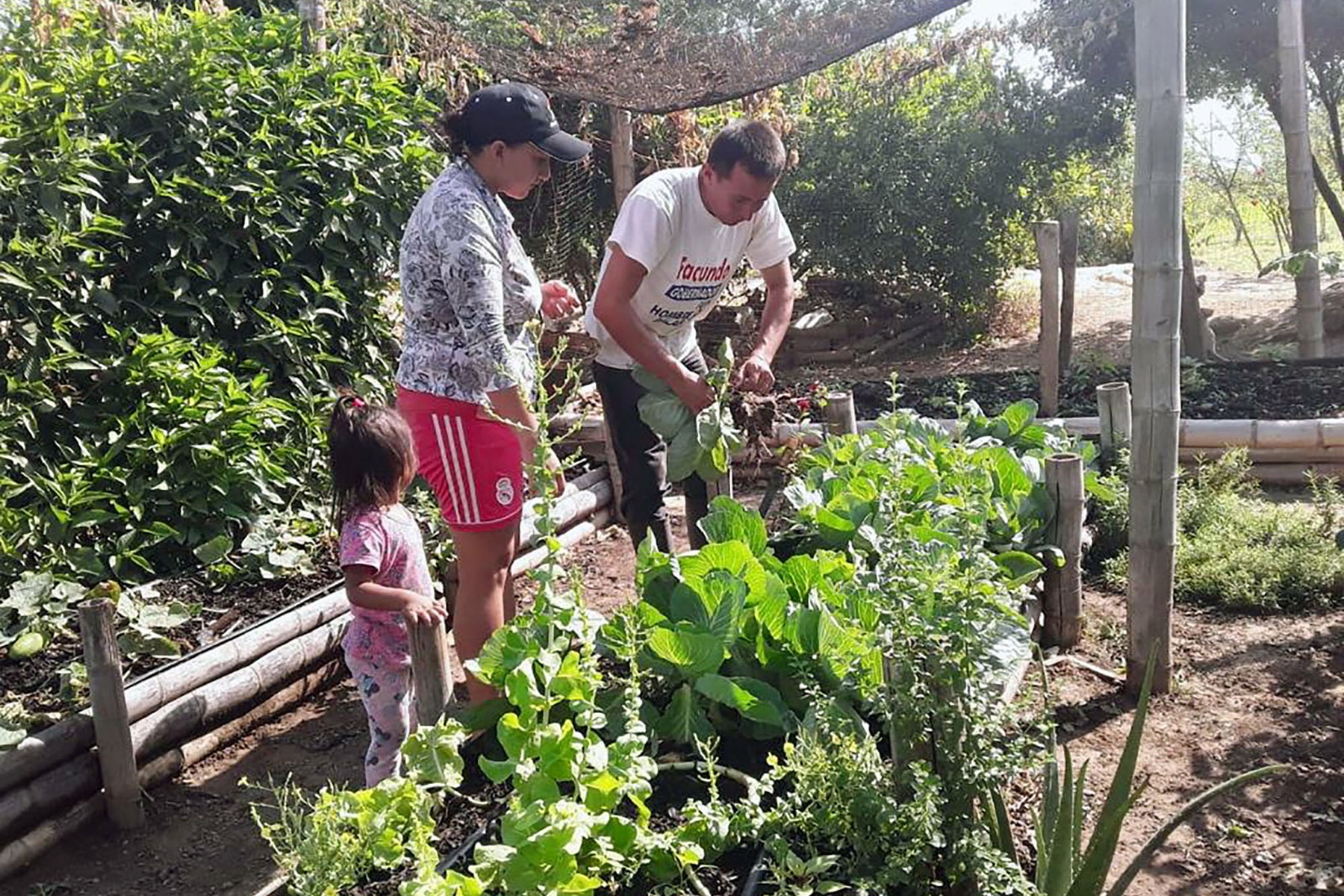
The project started with individual orchards to grow vegetables, and later a community garden.
The project began as an initiative to build orchards that would serve as protection and provide means to sustain the women in a context of frequent conflict or natural disaster. Each woman in the group started by planting a garden in front of her house. In the second phase, a group of women from this group built a more extensive community garden and participated in specific training sessions.
Some of the training was on agro economics and agroecology. The women learned about the traditional practice of connecting soil, plants, animals, human beings, and the environment to guarantee sustainable food security and livelihoods.
"This is a wonderful project that allows us to connect women and girls," said Perez. "My greatest happiness is that thanks to God, everything we have planted has grown. We thought that beets would not grow in this arid region, but with the advice of the agronomists who have accompanied us, we have been able to get our crops to flourish. We always put all our energy and love into this work".
Support survivors of the conflict
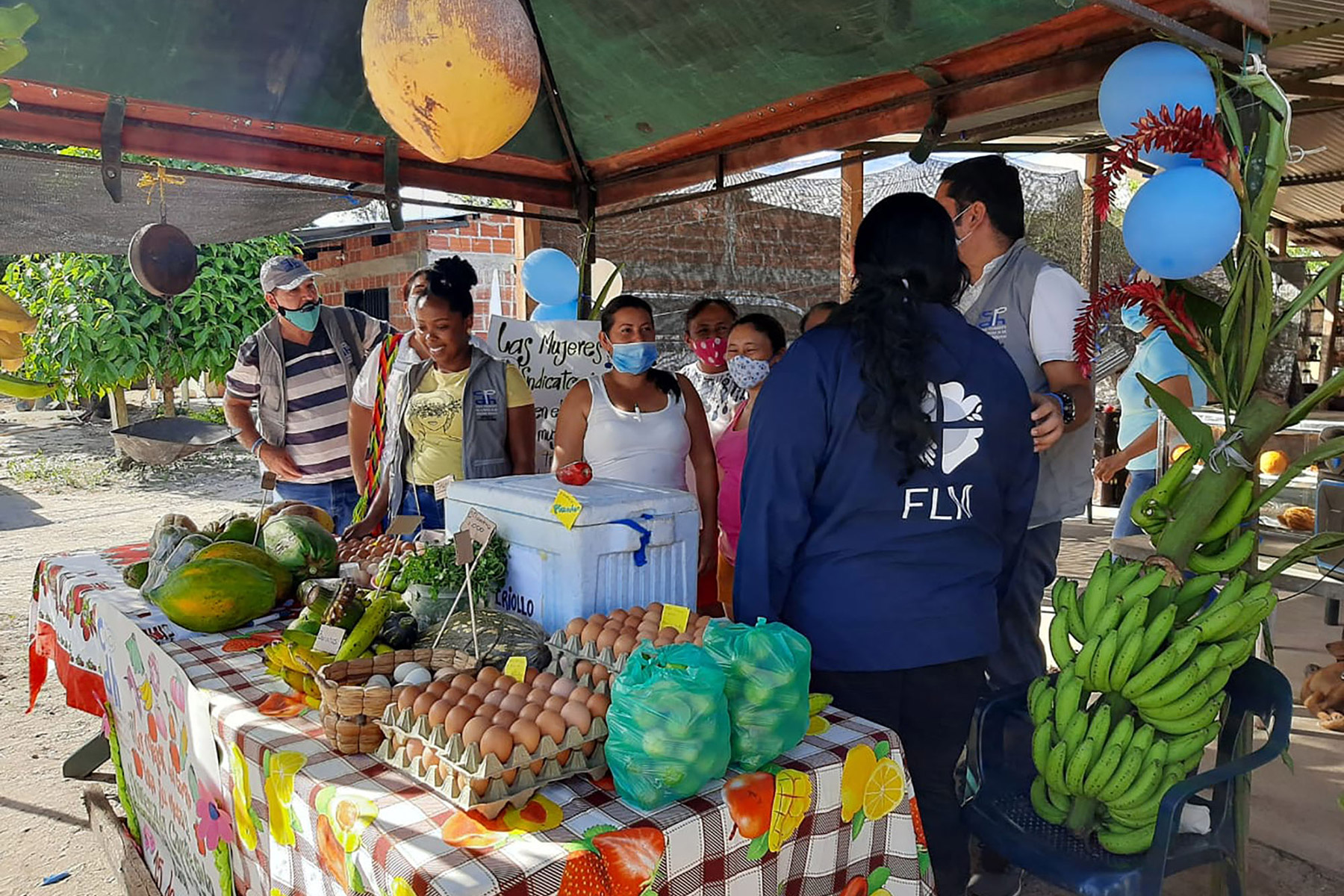
Soon, the project would yield enough to sell in a little shop.
The women, however, did not only learn about agriculture. With the support of the Arauca Chapter of The Standing Committee for Human Rights Defenders (CPDH), LWF offered workshops on family issues and human rights. The women also received information on where victims of the armed conflict can seek support and receive legal advice and information on protection. This information is valuable because there are people who have experienced violence within the community, but there is no institutional presence in the area. They now turned to the peasant women's group.
"I have seen many changes," Perez said. "Before, we would sometimes know if someone had been a victim of forced displacement. Because of the workshops, I know which entities they can approach. We also discuss and address the situation of those people within the project."
"Stove conversation"
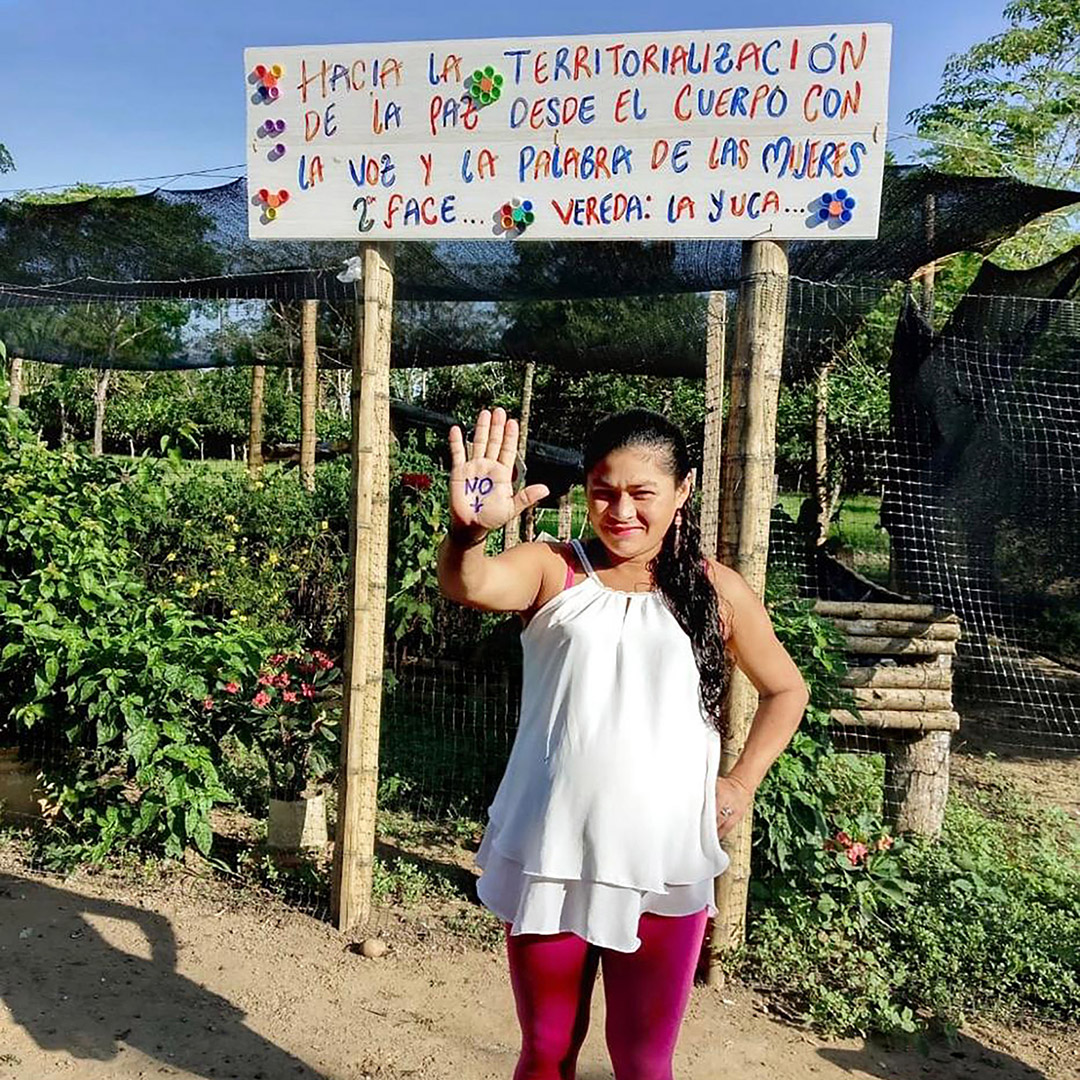
The project also educated women on human rights issues. The groups have now become a resource for survivors of human rights abuses during the Colombian civil war.
The women set up a space that they called 'stove conversation.' Here, the women of the community meet with their children and their husbands from time to time. They talk about leadership, discuss community action boards, and talk about new legislation and how it applies to their organization while sharing a snack. The stove conversations had to stop because of the COVID-pandemic. Still, the women stay in contact through messenger services and inform each other when vegetables need to be delivered.
There are people who believe that peasant women working in the fields do not have rights.
"There are people who believe that peasant women working in the fields do not have rights," says Perez. The workshops, discussions, and trainings allow women to explore new skills and abilities. Today, the La Yuca village group has a seed bank and a market stand to sell their vegetables near the community garden. The group, which started with five women, has also grown. More and more women from the community asked to join.
LWF Colombia Communications. Edited by: LWF/ C. Kästner
The project is funded by ACT Church of Sweden, SweFor, Forum Civ, Diakonia, and We Effect. It is implemented by the local partner Grupo de Organizaciones de la Sociedad Civil Suecas en Colombia.


